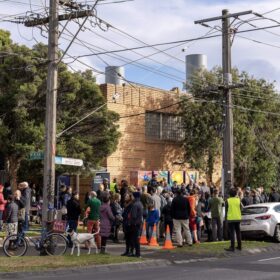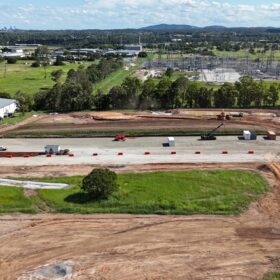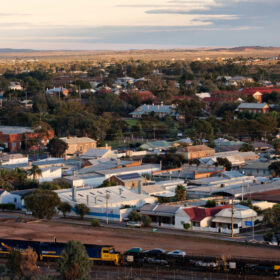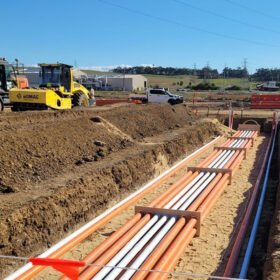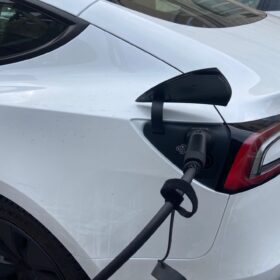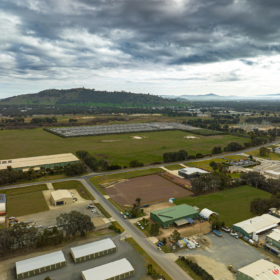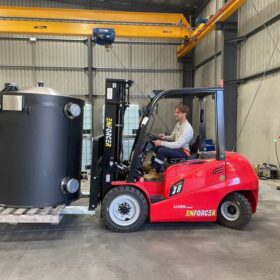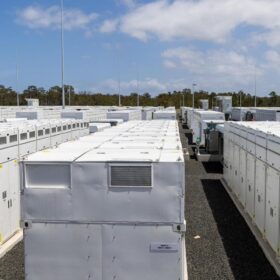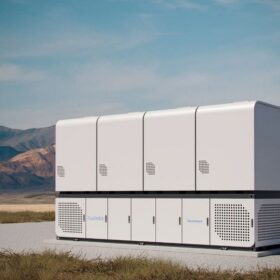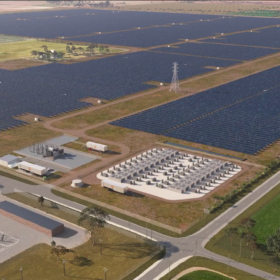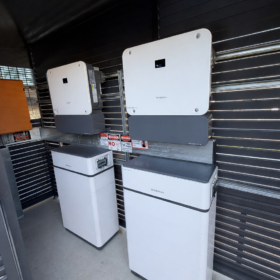Australian distributed battery rollout gets political
As a federal election draws nearer, the ways in which much-needed batteries in Australia’s electricity distribution network are incentivised is becoming highly political. With the rollout of community battery projects supported by the federal government underway, industry insiders are hoping that politicians settle on measures that will make distributed battery adoption mainstream.
Quinbrook seeks renewable power ‘holy grail’ with eight-hour battery tech
Australian green infrastructure investor Quinbrook Infrastructure Partners has announced it will roll out at least 3 GW of newly designed eight-hour duration battery energy storage systems across the country as it seeks to realise the “holy grail” of 24/7 cheap, renewable power.
NSW provides tick of approval for compressed air energy storage system
Broken Hill has moved another step closer to becoming one of the world’s largest renewable energy microgrids with the New South Wales government providing planning approval for an Australian-first compressed air energy storage facility to be built near the iconic mining town.
Zenviron lands BOP contract for 1.4 GWh battery project
Balance-of-plant contractor Zenviron has been awarded a contract with electricity gen-tailer EnergyAustralia to build a four-hour battery energy storage system of 350 MW capacity in Victoria’s Latrobe Valley.
Research paints positive picture of used EV battery health
New Australian research around battery degradation in used electric vehicles has found average battery health exceeded 90%, even for vehicles that have travelled more than 120,000 kilometres.
1.8 GWh battery project put in planning express lane
A 1.8 GWh battery energy storage system proposed for Victoria’s northeast is one of two new renewable energy projects set to be fast tracked through the state’s accelerated planning approval pathway.
Flow battery startup scores $1.85 million federal grant to scale to mass production
Newcastle based clean-tech company Allegro Energy has secured $1.85 million in federal government funding to help bring its redox flow battery technology to mass production.
NSW invests $1 billion to boost energy storage and infrastructure upgrades
The New South Wales government will channel up to $1 billion into large-scale and community batteries, pumped hydro, and virtual power plants as it seeks to ramp up investment in renewable energy generation and storage projects to support the state’s shift from coal-fired generation.
Fluence launches highly-modular 7.5 MWh AC-based BESS platform
The system features an innovative split design breaking away from the industry standard 20-foot container. It is configurable for storage durations of two to eight hours.
Energy Vault to supply battery storage system for Horsham renewables park
Energy storage solutions company Energy Vault will supply the Victorian government with 100 MW / 200 MWh battery energy storage system for its state electricity commission renewable energy park development.
